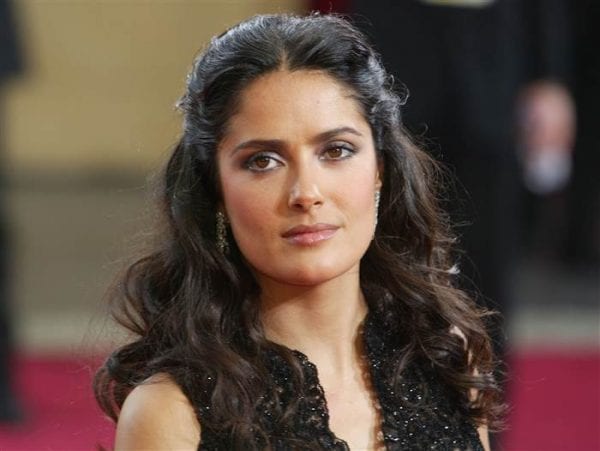These are the chilling words of prominent actor, Salma Hayek in her account of Harvey Weinstein.
In a first-person op-ed for the New York Times yesterday, Hayek became the latest woman in Hollywood to level accusations at the former film mogul. And just like her co-accusers, her experience is truly horrifying.
Hayek’s first encounter with Weinstein was a keen one. She recounts his willingness to work with her and produce her passion-project film, Frida — a biopic of Mexican artist Frida Kahlo. In the piece for the New York Times, she describes her excitement meeting a man whom she believed to be a “remarkable intellect” and “a loyal friend”.
“I was so excited to work with him and that company. In my naïveté, I thought my dream had come true. He had validated the last 14 years of my life. He had taken a chance on me — a nobody. He had said yes,” she writes.
Weinstein’s demeanour toward Hayek allegedly turned sour however, when he began to make repeated sexual advances toward her which she continued to refuse. His stalking, in Hayek’s eyes, knew no bounds.
“Little did I know it would become my turn to say no,” she describes.
“No to opening the door to him at all hours of the night, hotel after hotel, location after location, where he would show up unexpectedly, including one location where I was doing a movie he wasn’t even involved with.
“No to me taking a shower with him.
“No to letting him watch me take a shower.
“No to letting him give me a massage.
“No to letting a naked friend of his give me a massage.
“No to letting him give me oral sex.
“No to my getting naked with another woman.
“No, no, no, no, no …”
And with each refusal, each humiliation, Weinstein’s rage would boil over. At a certain point, his fury intensified so much that he leveled death threats at Hayek.
“The range of his persuasion tactics went from sweet-talking me to that one time when, in an attack of fury, he said the terrifying words, “I will kill you, don’t think I can’t.” She writes.
From there on, Weinstein became intent on tearing down Hayek’s work, obstructing the film’s production and success and bullying her into believing that her only worth as an actor was her sex appeal–and her portrayal of Frida had none of this.
Finally, the bullying resulted in an ultimatum.
The film would only move ahead if she agreed to perform a sex scene with another woman. His failed advances had culminated in a lust to humiliate and degrade Hayek in another way.
“It was clear to me he would never let me finish this movie without him having his fantasy one way or another. There was no room for negotiation” writes Hayek.
The “senseless scene” caused Hayek such immense anxiety, that she suffered a nervous breakdown on the day of filming. She convulsed, cried and repeatedly threw up until she was administered tranquillisers.
“It was not because I would be naked with another woman. It was because I would be naked with her for Harvey Weinstein,” she recounts.
Her “monster” was always going to have the final say.
Frida, of course went on to be a huge box office hit. The film won several accolades, including six Academy Award nominations, including Best Actress and two wins. But Hayek was never offered a starring role in a Miramax film again.
But Harvey Weinstein didn’t win the war.
Indeed, Hayek’s voice adds new vigour to the chorus of women calling for widespread change and relegating Weinstein to a cold, dank corner of history. He will be remembered as nothing more than a heinous predator. In her final words, Hayek celebrates a new era of enlightenment.
“I am grateful for everyone who is listening to our experiences. I hope that adding my voice to the chorus of those who are finally speaking out will shed light on why it is so difficult, and why so many of us have waited so long.
“Men sexually harassed because they could. Women are talking today because, in this new era, we finally can.”


